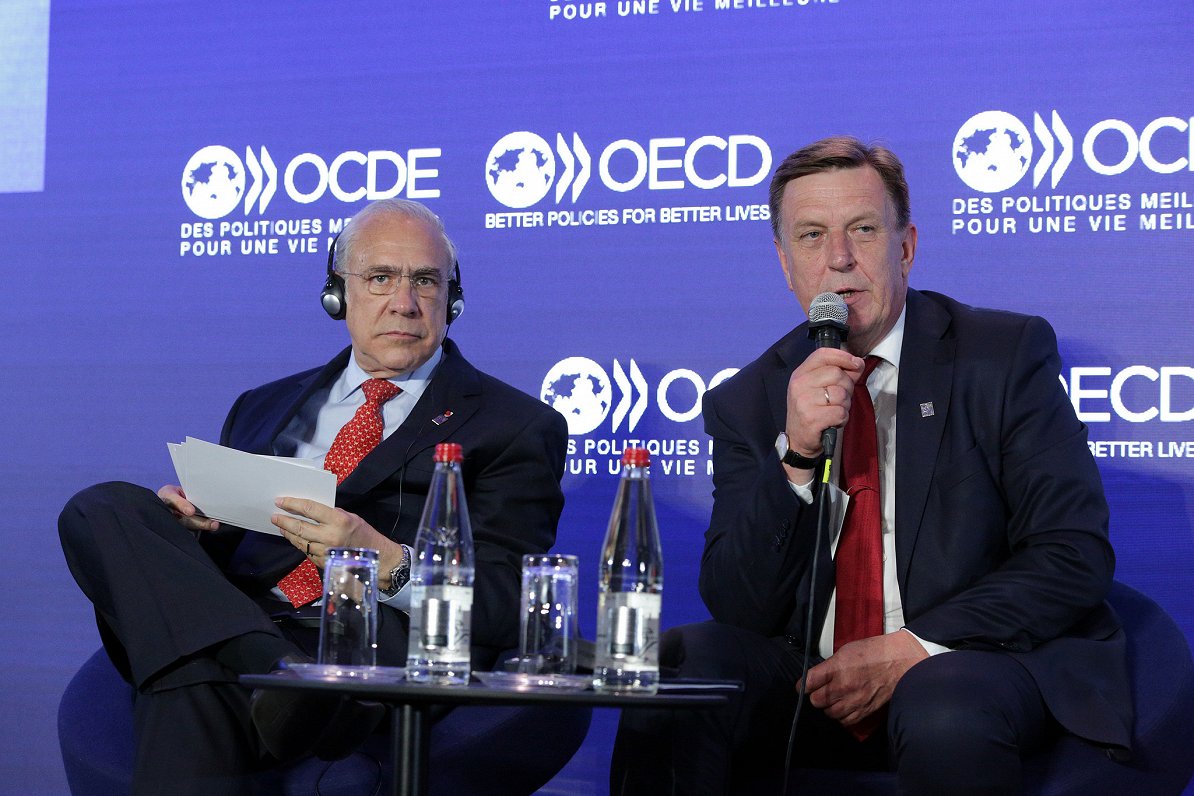The data, released against the background of a major OECD meeting in Paris that saw Prime Minister Maris Kučinskis mixing with French President Emmanuel Macron and OECD chairman Angel Gurria, paints a generally positive picture of Latvia's medium-term economic prospects that nevertheless flags up some serious challenges.
"Following an exceptionally strong 2017, economic growth will moderate somewhat in 2018, to around 4%, as investment decelerates due to the slower pace of disbursements of EU funds. Emigration and low domestic labor mobility lead to skills shortages and mismatches, contributing to strong wage growth and rising inflationary pressures. Strong domestic demand will keep import growth high," a summary says.
"Fiscal policy will remain expansionary following tax reforms and welcome spending increase on health care. Reallocating spending toward higher minimum income support, better access to health care, more generous financial support for poor students, and policies to improve access to affordable housing in regions with strong employment growth would reduce poverty and boost productivity growth," the OECD said.
"Latvia has made significant progress in upgrading its vocational education and training. The government should guarantee steady financing for further improvement in the quality of vocational education, such as curriculum reforms. Promoting innovation co-operation between firms and research institutions would help Latvia diversify its exports toward technology intensive goods and services and boost productivity," the organization added.
In his talks with Gurria, Kučinskis made a point of saying the banking scandal-strewn Latvian banking sector was being cleaned up.
"Thanks to decisive measures, the share of high-risk deposits in Latvia has decreased significantly. We also expect changes in the business strategies of banks, which will enable them to reorient their operations away from high-risk transactions. These changes take place under the supervision of the supervisory authority, therefore the stability of the financial system is not threatened," offered the Prime Minister.
The 4% figure means Latvia will be about average for the growth the OECD expects to see worldwide.
"The pace of global expansion over the 2018-19 period is expected to hover near 4%, which is close to the long-term average. However, the Outlook also underlines that significant risks posed by trade tensions, financial market vulnerabilities and rising oil prices loom large, and more needs to be done to secure a strong and resilient medium-term improvement in living standards.































